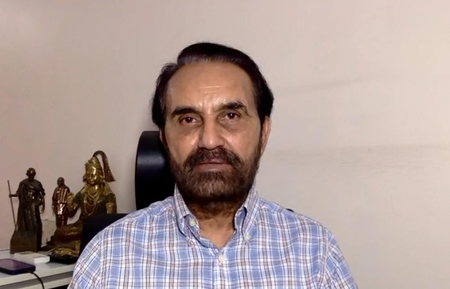
London, Oct 26 (IANS) With prisons in England and Wales about to run out of cells, and knife crime surging in London, the British government has been urged to do more to address the associated security concerns.
Major media outlets in the country, including The Times and the Financial Times, have reported that prisons were so crowded that court judges had been ordered to delay the sentencing of convicted criminals on bail, reports Xinhua news agency.
Lord Justice Edis, the senior presiding judge in England and Wales, had also reportedly told judges to use the cells in magistrates’ courts to hold suspects accused of the most serious crimes who were remanded in custody.
Official figures published on October 6 showed that the prison population stood at 88,016, only 651 short of the “usable operational capacity” of 88,667.
According to the Ministry of Justice, the prison population has soared following the Covid-19 pandemic and the lawyers’ strike.
The situation has been exacerbated by a higher than usual number of offenders entering prison this year.
Adding to the concerns is the surging knife crime, including knife-point rapes and sexual assaults, in London.
The Office for National Statistics (ONS) said that more than 12,000 knife offenses have been recorded in the country’s capital over the 12 months to the end of March this year, an increase of 16 percent over last year.
London Mayor Sadiq Khan has claimed that the cost-of-living crisis has contributed to the rising violence in the British capital as “spiralling costs…push more and more people into poverty and leave young people unable to access activities and at greater risk of exploitation”.
Britain running out of prison cells is not helping to address the issue.
Justice Secretary Alex Chalk has outlined a plan to tackle the problem, including releasing less serious offenders early from prison, with people guilty of lower-level crimes being given community sentences rather than being locked up.
At the same time, people convicted of serious crimes, such as rape and sexual violence, will be given longer spells.
The measures have generated mixed feelings among the general population.
Christine Haycock, a mother of three who lives in Cheshire, told Xinhua: “There have to be punishments for crimes so that we can all feel safe. I want my kids to feel safe when they are outside. I worry that going soft on criminals will make things a lot worse.”
Lawrence Dennett, a researcher from Liverpool, said: “I have always felt we are sending too many people to prisons for non-violent crimes. I would much prefer those offenders to have community sanctions so that the more violent criminals can be locked up to keep them off the streets.”
Barry Godfrey, professor of social justice at the University of Liverpool, said some of the new measures are controversial and much more need to be done to address the security issue.
“Politically, it’s difficult to talk tough on crime and not convince the British public that you’re being tough in giving people non-custodial sentences.”
Even though community service may help in some cases, many people, added Godfrey, will still need to serve time behind bars for the protection of society.
Commenting on knife crime, Godfrey said the issue is much more complicated than it seems, and the root causes need to be tackled.
“Binding people into society is the best way of preventing people getting into gangs. You need to address the issue of why these young boys join gangs. That’s the real issue,” he added.
–IANS
ksk




